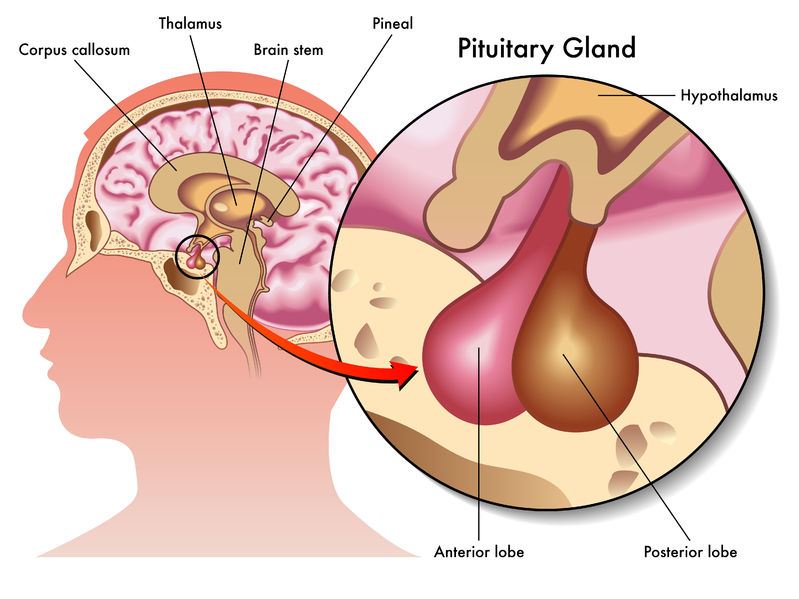Physical growth is a complex process that involves the action of growth hormone.
Growth hormone (GH) plays a key role in body composition, cell repair, and metabolism. It also increases muscle growth, strength, and exercise performance.
Having optimal levels of growth hormone is especially important during childhood and adolescence as well as in the processes of weight loss, recovery from injuries and illnesses.
Interestingly, low or high levels of this hormone can cause negative effects at different levels and affect the aging of the body.
Read on to know everything about this hormone. What is growth hormone for, how is it stimulated, and how does it affect the body?
What is growth hormone?
Growth hormone (GH or somatropin) is a small protein produced by the pituitary gland. GH production is controlled by a complex set of hormones produced in the hypothalamus of the brain, the intestinal tract, and the pancreas.
The pituitary gland emits GH in bursts and releases it into the bloodstream. Levels rise after exercise, injury, and sleep.
Under normal conditions, more GH is produced during the night than during the day. This process is physiologically complex, and it tells us that sporadic blood tests to measure GH levels don’t make much sense; since the levels (high and low) alternate throughout the day.
In addition, GH production also changes over the years: it increases during childhood, peaks during adolescence, and decreases starting in middle adulthood.
RELATED: How to Gain Height in Adolescence?
What is GH for and how does it affect the body?
GH acts on many tissues in the body. In children and adolescents it stimulates the growth of bones and cartilage. In adults of all ages, GH increases protein production, promotes fat utilization, interferes with the action of insulin, and raises blood sugar levels.
Other known effects of growth hormone in the body include: affecting the metabolism of certain electrolytes (including sodium, potassium, and calcium), promoting the release of body fat, and influencing carbohydrate metabolism .
The latter action is mediated by an increase in insulin-like growth factor 1 (IGF-1) and creates a demand for increased insulin production, which acts to bring blood sugar levels back to normal.
Effects of excess GH on the body
Excess growth hormone has harmful effects on the body. In humans, if this occurs in youth, it results in gigantism. If it occurs in adulthood, it causes acromegaly. Both are serious disorders of the body.
People with acromegaly suffer from excessive enlargement of the distal parts of the body, including the hands, feet, chin, and nose. As well as the enlargement of organs such as the tongue, heart, liver and kidneys.
The enlargement is due to overgrowth of cartilage, muscle, subcutaneous tissue, bones, and skin. This is associated with an increased risk of prostate cancer, heart disease, hypertension , arthritis, loss of sexual desire, and early death. (4)
Low levels of growth hormone
Low GH levels are one of the main causes of short stature and dwarfism. It usually occurs as the result of damage to the hypothalamus or the pituitary gland during fetal development or the first few months of life. GH deficiency can also be caused by mutations in genes that regulate its production. (3)
GH deficiency is usually treated with injections. Children and adolescents generally respond well and tend to reach almost normal height. Low GH levels can persist into adulthood, although some people treated in childhood have normal secretion in adulthood.
Interestingly, another reason for short stature and lack of GH can be severe emotional trauma in children, this is known as psychosocial dwarfism. When children with this disorder are removed from the stressful environment, their endocrine function and growth rate normalize.
Growth hormone deficiency in adults is associated with fatigue, lack of energy, depressed mood, decreased muscle strength, decreased muscle mass, thin and dry skin, and low bone density.
Human growth hormone and aging
The assumptions about the benefits of growth hormone in youth began after a study published in 1990 by Rudman and his colleagues. This study experimented in men older than 65 years of age after 6 months of growth hormone treatment. (7)
Because GH treatment reduced body fat, increased muscle mass, increased bones, and overall well-being; Rudman associated that the decline in growth hormone with age is responsible for the typical changes that occur in old age.
GH’s widely publicized potential as an anti-aging agent attracted much interest at the time.
Now, can human growth hormones really benefit aging? According to scientists today, it seems the opposite is true.
The results obtained so far have been disappointing with few documented benefits and many side effects.
One study found that in both humans and mice, excessive increases in GH levels are associated with an increased risk of disease and a shorter life expectancy, which is likely to represent an acceleration of aging. (5)
Another animal study, where growth hormone was blocked in mice, (made resistant). An increase in longevity of between 25% and more than 60% was observed in both genders. (7)
Another review on the effects of growth hormone in men concludes that the normal physiological functions of GH to promote growth, sexual maturation and fertility involve significant costs in terms of aging and life expectancy. (8)
These results lead to a counterintuitive situation (but inevitable conclusion) that GH actions limit life expectancy in some way and that this is likely accompanied by acceleration of the aging process.
ABSTRACT
Growth hormone helps your body with metabolism, cell repair, and other vital functions.
How with other key hormones like testosterone , estrogens , insulin and T3 having healthy levels of growth hormone is important for growth. Both the lack of GH and its excess is associated with diseases.
Evidence suggests that growth hormone’s role in anti-aging functions is not real. In contrast, high levels of somostatin can trigger accelerated aging.







